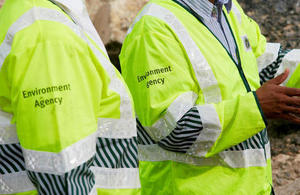- Sir Robert Francis QC launches consultation on terms of reference for his independent study looking at options for a framework for compensation for the victims of the infected blood tragedy.
- Consultation will look at the suggested scope for the study from people directly infected, and others with an interest.
The Paymaster General has appointed Sir Robert Francis QC to undertake an independent study, looking at options for a framework for compensation for the victims of the infected blood tragedy. The study will report back to the Government with recommendations, before the Infected Blood inquiry reports. The terms of reference of this study which will determine its scope and will be finalised following consultation between the independent reviewer and those infected and affected.
The purpose of this study is to advise on the parameters and principles of a potential framework for a scheme of compensation to be paid to the victims of infected blood. It is anticipated that the Inquiry’s findings and recommendations may point towards such a scheme when it reports.
The study is a separate piece of work from the ongoing Infected Blood Inquiry, which is an independent public statutory Inquiry. The findings of the study will be made public and available to the Inquiry before its report is published.
The purpose of doing this work now is to ensure that there is no unnecessary delay in implementing any potential recommendations by the Inquiry in relation to compensation or levels of financial support.
Suggested scope of the study
To help inform consultation on the study’s terms of reference, the following points cover the suggested scope of the study:
-
To consider the rationale for such compensation
-
Give independent advice to the Government regarding the design of a workable and fair framework for compensation for individuals infected and affected;
-
To consider the scope of such compensation, and whether it should be extended beyond infected individuals and their partners, to include for example affected parents and children, either because of the impact of caring responsibilities or the effects of bereavement;
-
To consider the measures for compensation, looking at other national schemes (for example, the compensation tribunal established in the Republic of Ireland),
-
To consider the relationship between a compensation framework and the current financial support schemes;
-
To consider options for administering the scheme.
-
Submit to the Government its report and recommendations as quickly as possible and no later than the end of February 2022, to provide the Government with advice on potential options for compensation framework design.
Sir Robert is keen to receive comments on this suggested scope for the study from people directly infected, and others with an interest. He is particularly interested in the following areas so responses should be framed along these lines:
- Do these points capture all the things the study should consider?
- Do they cover the right areas?
- Are there issues missing from this list which Sir Robert should look at?
Consultation deadline extended
The deadline for the consultation about the Study’s terms of reference has been extended until 9 August, to allow the recognised legal representatives (RLRs) of infected and affected core participants to provide submissions. The RLRs will be asked to make their submissions about draft terms of reference which will be based on the responses to the consultation received so far, and provided to the RLRs on 26 July. Because of the wholly exceptional nature of this issue, limited funding will be made available to each firm for the purposes of completing this piece of work on the consultation. Sir Robert will consider responses to the consultation before submitting his proposals to the Paymaster General for decision. The terms of reference will be published shortly afterwards.
Approach
It is not the intention of the study to interfere with the work of the statutory public inquiry or anticipate its findings, or compromise it in any way. The study will, however, take account of evidence heard and published by the Inquiry.
The study is quite different to the public inquiry. It will not undertake, or otherwise commission, new evidence in relation to the facts being investigated by Sir Brian, but the views of the infected and affected community on such a compensation scheme and their experiences of seeking support will be at the heart of the study. Sir Robert will want to hear directly from people directly affected, as well as being able to call on Department for Health and Social Care, HM Treasury and other departments for information and analysis to which the study may have regard.
The study will:
- Listen to the experiences and views of those who have suffered harm.
- Consult with relevant individuals or organisations with experience of setting up a compensation framework to offer workable solutions to assist in the design.
- Look at other compensation schemes, for example the Republic of Ireland compensation tribunal, to consider how they operate and what lessons can be taken for the design of a UK scheme.
- Provide advice and recommendations to The Government
The study will not:
- Re-run evidence already being heard by the Inquiry in relation to the historical background to the tragedy or how it happened.
- Require victims to have legal representation to put forward their views. Sir Robert is keen to hear directly from infected and affected people and this study is not intended to re-run the legal submissions made to the Inquiry. Participants can of course engage legal representation to present their contributions, but we do not think this will be necessary.


